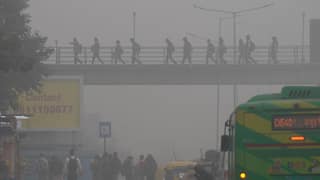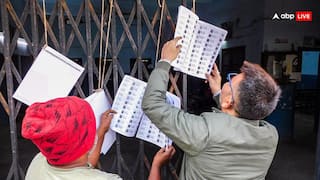Sri Lanka Bans Transportation Of Beef & Mutton As Cold Weather Causes Cattle Deaths
Sri Lanka suspended the transportation of beef and mutton at district and provincial levels after a large number of cattle and goats died due to unusually cold weather the north and eastern provinces.

New Delhi: Sri Lanka on Saturday suspended the transportation of beef and mutton at district and provincial levels. This comes after a large number of cattle and goats died in the last two days due to unusually cold weather in areas of the north and eastern provinces. President Ranil Wickremesinghe issued the orders to ensure public health safety, officials said, as reported by the news agency PTI.
According to the statistics by the Department of Animal Production and Health, 358 cattle and 191 goats have died in the northern province, while 444 cattle, 34 buffaloes, and 65 goats died in the eastern province, as reported by PTI. Director General of the Department of Animal Production and Health Hemali Kothalawala said that specimens of animals will be subjected to laboratory tests at the Veterinary Research Institute on Saturday and Sunday.
Sri Lanka has reported a surge in the cases of malnutrition among children, according to the cash-strapped country's health ministry, indicating the urgent need to take steps toward food security to resolve the issue. Speaking to reporters on Wednesday, Dr. Chitramali de Silva, the bureau director of the health ministry's family health bureau, said that severe acute malnutrition among children had increased to 1.4 percent this year up from 1.1 percent.
"Sri Lanka, hit by its worst-ever economic crisis, is experiencing increased malnutrition among children. The severe acute malnutrition among children had increased to 1.4 percent this year up from 1.1 percent," de Silva said, reported by PTI. She said that the north-central Polonnaruwa and the southern districts of Galle and Matara suffered the most with a total of 18,420 children being detected with acute malnutrition.
The percentage of underweight children in 2022 stands at 15.3 percent up from 12.2 percent in 2021, she added. The health ministry's comments came days after the UN World Food Program (WFP) said that at least 56,000 children in Sri Lanka currently suffer from severe acute malnutrition.
According to the latest figures published by the WFP, 32 percent of households are now food insecure, and 68 percent of households are turning to food-based coping strategies such as eating less preferred food or reducing the number of meals and portion sizes.
De Silva said that stunting had increased to 9.2 percent up from 7 percent while wasting had gone up over 10 percent from being at 8 percent. “We have to take steps to create food security to stop malnutrition. We would appreciate donors and nongovernmental organisations stepping forward,” she said.
Sri Lanka, a country of 22 million people, plunged into financial and political turmoil earlier this year as it faced a shortage of foreign currencies.
Due to this, the country has been unable to afford key imports, including fuel, fertilisers, and medicines, leading to serpentine queues. The crisis led to shortages of essentials as the island was not able to fund imports due to foreign exchange shortages. Street protests against the government for its mishandling of the economy led to the ouster of the then president Gotabaya Rajapaksa in mid-July.
(With PTI Inputs)






































